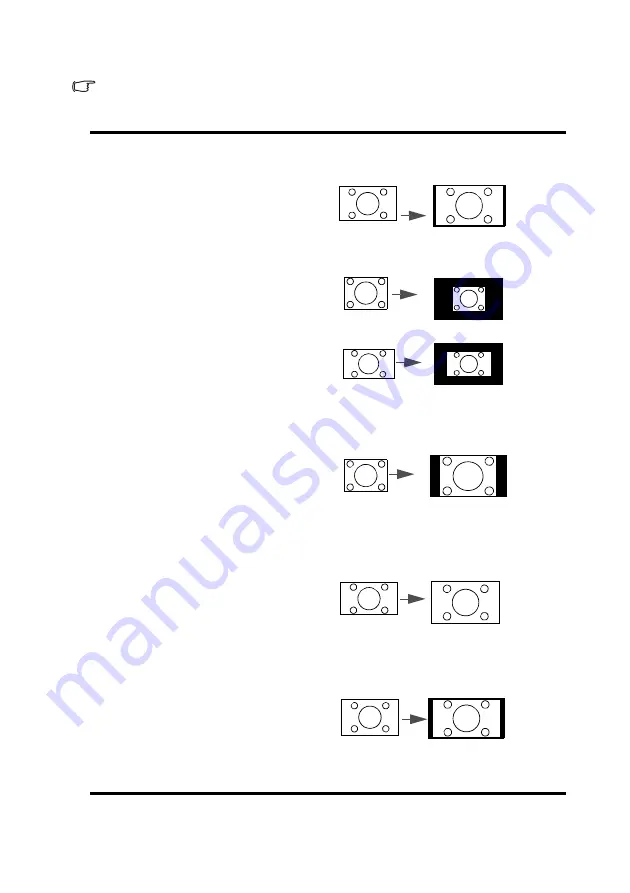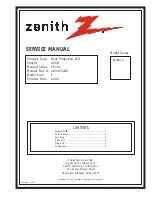
Operation
26
About the aspect ratio
•
In the pictures below, the black portions are inactive areas and the white portions are active areas.
•
OSD menus can be displayed on those unused black areas.
1.
Auto
:
Scales an image proportionally
to fit the projector's native resolution
in its horizontal or vertical width. This
is suitable for the incoming image which
is neither in 4:3 nor 16:9 and you want
to make most use of the screen
without altering the image's aspect
ratio.
2.
Real
:
The image is projected as its
original resolution, and resized to fit
within the display area. For input signals
with lower resolutions, the projected
image will display smaller than if resized
to full screen. You could adjust the
zoom setting or move the projector
towards the screen to increase the
image size if necessary. You may also
need to refocus the projector after
making these adjustments.
3.
4:3
: Scales an image so that it is
displayed in the center of the screen
with a 4:3 aspect ratio. This is most
suitable for 4:3 images like some
computer monitors, standard definition
TV and 4:3 aspect DVD movies, as it
displays them without aspect alteration.
4.
16:9
: Scales an image so that it is
displayed in the center of the screen
with a 16:9 aspect ratio. This is most
suitable for images which are already in
a 16:9 aspect, like high definition TV, as
it displays them without aspect
alteration.
5.
16:10
: Scales an image so that it is
displayed in the center of the screen
with a 16:10 aspect ratio. This is most
suitable for images which are already in
a 16:10 aspect, as it displays them
without aspect alteration.
15:9 picture
4:3 picture
16:9 picture
4:3 picture
16:9 picture
16:10 picture
















































